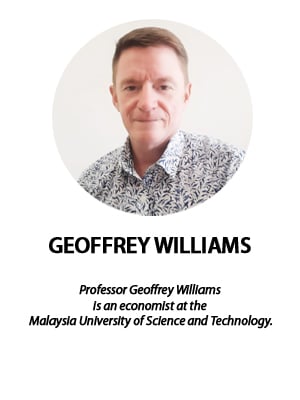 With the government currently pushing for more competition and hence, fewer monopolies in Malaysia, (Puspakom and Touch & Go are recent examples), it is natural to ask why so many monopolies were created in the first place.
With the government currently pushing for more competition and hence, fewer monopolies in Malaysia, (Puspakom and Touch & Go are recent examples), it is natural to ask why so many monopolies were created in the first place.
Monopolies emerge for many reasons. For example the TNB monopoly in power distribution is a “natural monopoly” because it is too expensive to build two competitive electricity distribution systems. This justifies one provider.
Some, such as the Bernas rice monopoly, are created by policy. There is no real economic reason why many companies could not supply rice.
Some, like T&G, emerged from corporate restructuring. Originally it was created by PLUS to collect toll which was controlled by the government and used for highway maintenance. It worked very well.
Then it was sold and it now competes with other e-wallets for other purposes but still has the toll monopoly.
Other monopolies emerged from technology such as the Microsoft operating system but they have to allow companies access to the code so they can provide packages.
This has been forced by law in the EU for example but the market also forces it because the MS OS would not be as popular if you could not use all packages with it.
Pharmaceutical companies have patent monopolies over medicines to allow them to charge higher prices to recover R&D costs.
After the patent expires the medicines can be produced as generics by other companies and sold at lower prices.
The problem is that sometimes the patent lasts too long and people cannot afford life-saving medicines until it expires.
To break up monopolies, either you remove their exclusive licences or you break down the barriers to entry so others can compete.
This is what will happen with Puspakom and should be done with Bernas and Pharmaniaga.
There are many examples where removing monopolies lowers prices for consumers.
In the UK, breaking up monopolies in electricity and gas supplies through privatisation helped keep prices down but they still have to be regulated.
Breaking down monopolies for airline access to flight routes and airports has allowed low-cost carriers into the market and kept fares down through market forces all around the world.
For T&G, allowing toll payments by credit cards breaks down their monopoly. T&G will still survive but prices may not come down because they are set by the government.
It is easy to break up monopolies. In those cases where they are due to exclusive licences, you just remove it like Puspakom.
If the monopoly is due to patents it is harder because patents have IP protection. You have to shorten the patent life or legislate to allow access.
The taxi monopolies were broken up by disruptive technologies in e-hailing by Grab and Uber. Here you just allow market entry by prohibiting anti-competition activities and introducing competition law.
In the US this is called anti-trust legislation.
Professional monopolies such as the Malaysian Medical Council (MMC), Bar Council or Malaysian Institute of Accountants require changes in law to remove their exclusive licensing rights.
Allowing any doctor to practise with an accredited degree for example will end the MMC monopoly and solve the current contract doctor crisis in the Malaysian healthcare system.
Despite this, some monopolies can be successful if they serve a public interest such as TNB but they need to be regulated.
Regulation keeps TNB tariffs down and allows everyone access to electricity. It is a major social benefit.
So the government will successfully break up most monopolies in Malaysia because they mostly exist due to exclusive licences which can be revoked by the government but this will be a long haul. - FMT
The views expressed are those of the writer and do not necessarily reflect those of MMKtT.


No comments:
Post a Comment
Note: Only a member of this blog may post a comment.